第6章 A STUDENT OF CHARACTER(1)
Left alone, Wingrave walked for several minutes up and down the room, his hands behind him, his head bent. He walked, not restlessly, but with measured footsteps. His mind was fixed steadfastly upon the one immediate problem of his own future. His interview with Rocke had unsettled--to a certain extent unnerved--him. Was this freedom for which he had longed so passionately, this return into civilized life, to mean simply the exchange of an iron-barrel cell for a palace whose outer gates were as hopelessly locked, even though the key was of gold! Freedom! Was it after all an illusion? Was his to be the hog's paradise of empty delights; were the other worlds indeed forbidden? He moved abruptly to the window and threw it open. Below was Piccadilly, brilliant with May sunshine, surging with life. Motors and carriages, omnibuses and hansoms, were all jostled together in a block; the pavements were thronged with a motley and ever-hurrying crowd. It seemed to him, accustomed to the callous and hopeless appearance of a less happy tribe, that the faces of these people were all aflame with the joy of the springtime. The perfume from the great clusters of yellow daffodils and violets floated up from the flower sellers' baskets below; the fresh, warm air seemed to bring him poignant memories of crocus-starred lawns, of trim beds of hyacinths, of the song of birds, of the perfume of drooping lilac. Grim and motionless, as a figure of fate, Wingrave looked down from his window, with cold, yet discerning eyes. He was still an alien, a denizen in another world from that which flowed so smoothly and pleasantly below. It was something to which he did not belong, which he doubted, indeed, if ever again he could enter. He had no part in it, no share in that vigorous life, whose throbbings he could dimly feel, though his own heart was beating to a slower and a very different tune. They were his fellows in name only. Between him and them stood the judgment of--Rocke!
The evil chances of the world are many! It was whilst his thoughts traveled in this fashion that the electric landaulette of Lady Ruth Barrington glided round the corner from St. James' Street, and joined in the throng of vehicles slowly making their way down Piccadilly. His attention was attracted first by the white and spotless liveries of the servants--the form of locomotion itself was almost new to him. Then he saw the woman who leaned back amongst the cushions. She was elegantly dressed; she wore no veil; she did not look a day more than thirty. She was attractive, from the tips of her patent shoes, to the white bow which floated on the top of her lace parasol; a perfectly dressed, perfectly turned out woman. She had, too, the lazy confident air of a woman sure of herself and her friends. She knew nothing of the look which flashed down upon her from the window overhead.
Wingrave turned away with a little gasp; a half-stifled exclamation had crept out from between his teeth. His cheeks seemed paler than ever, and his eyes unnaturally bright. Nevertheless, he was completely master of himself. On the table was a large deed box of papers, which Rocke had left for his inspection.
From its recesses he drew out a smaller box, unlocked it with a key from his chain, and emptied its sole contents--a small packet of letters--upon the table. He counted them one by one. They were all there--and on top a photograph. A breath of half-forgotten perfume stole out into the room. He opened one of the letters, and its few passionate words came back to his memory, linked with a hundred other recollections, the desire of her eyes, of her lips raised for his, the caressing touch of her fingers. He found himself wondering, in an impersonal sort of way, that these things should so little affect him. His blood ran no less coldly, nor did his pulses beat the faster, for this backward glance into things finished.
There was a knock at the door. He raised his head.
"Come in!"
A slim, fair young man obeyed the summons, and advanced into the room.
Wingrave eyed him with immovable face. Nevertheless, his manner somehow suggested a displeased surprise.
"Sir Wingrave Seton, I believe?" the intruder said cheerfully.
"That is my name," Wingrave admitted; "but my orders below have evidently been disobeyed. I am not disposed to receive visitors today."The intruder was not in the least abashed. He laid his hat upon the table, and felt in his pocket.
"I am very sorry," he said. "They did try to keep me out, but I told them that my business was urgent. I have been a journalist, you see, and am used to these little maneuvers."Wingrave looked at him steadily, with close-drawn eyebrows.
"Am I to understand," he said "that you are in here in your journalistic capacity?"The newcomer shook his head.